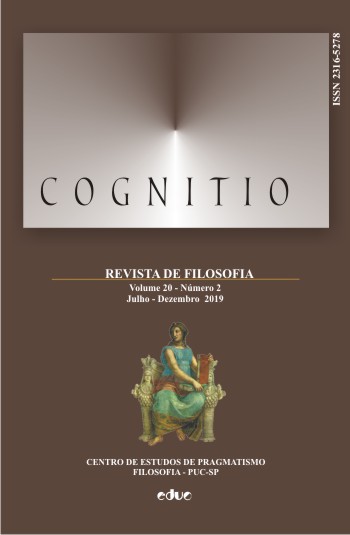Uma teoria semiótica do autocontrole
DOI:
https://doi.org/10.23925/2316-5278.2019v20i2p217-229Palavras-chave:
Autocontrole, Emoções, Ética, Gramática especulativa, Sentimentos.Resumo
A presente proposta tem como seu principal objetivo mostrar como a emergência de hábitos autocontrolados de emoções podem ser explicados segundo a gramática especulativa de Peirce. Como resultado, espero mostrar, uma possível aplicação da gramática especulativa, sobre o qual muito é especulado, mas pouco é aplicado; segundo, sugerir uma possível teoria da linguagem entendida como uma forma controlada de nossos sentimentos de tal modo a permitir que sejam compartilhadas e comunicadas. Além disso, e ainda mais importante, isto mostraria que a divisão tradicional entre a faculdade da razão e a faculdade emocional não é tal, antes deve ser dito que a razão, ou melhor a razoabilidade, surge e afunda suas raízes nessa faculdade e cresce dela em um continuum. Assim, qualquer educação que vise o autocontrole deve começar com uma educação estética ou, se preferir, com uma educação sentimental.Downloads
Publicado
2020-02-16
Como Citar
Acosta López de Mesa, J. (2020). Uma teoria semiótica do autocontrole. Cognitio: Revista De Filosofia, 20(2), 217–229. https://doi.org/10.23925/2316-5278.2019v20i2p217-229
Edição
Seção
Artigos Cognitio









